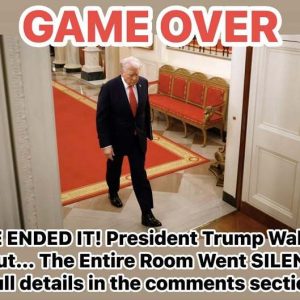A longstanding constitutional dispute over presidential authority reached the Supreme Court, centered on former President Donald Trump’s use of a “pocket rescission” to freeze more than $4 billion in foreign aid. This rarely used mechanism allows presidents to cancel funds if Congress fails to act before the fiscal year ends. Trump targeted aid for USAID and international organizations that had previously challenged his administration in court. Legal experts noted that his action directly tested the Impoundment Control Act of 1974, enacted after Watergate to restrict presidents from unilaterally withholding funds appropriated by Congress.
Initially, a lower-court ruling by Judge Amit Mehta Ali, a Biden appointee, blocked Trump’s rescission, emphasizing congressional control over federal spending. However, the Supreme Court overturned that decision in a 6-3 ruling, siding with Trump. The conservative majority cited the president’s constitutional authority over foreign affairs, arguing that limiting executive discretion in such matters could do more harm than allowing the freeze. In contrast, the liberal justices dissented, expressing concern that the ruling weakens Congress and erodes democratic checks and balances. The case reflected broader debates over presidential power, similar to Trump’s contemporaneous challenges to the independence of the Federal Trade Commission.
The decision represents a significant affirmation of executive authority, reinforcing conservative trends that expand presidential discretion in both domestic and international policy. Supporters praised the ruling as a restoration of traditional presidential prerogatives, allowing the executive branch greater flexibility in managing foreign aid and other discretionary spending. Critics, however, warned that the precedent undermines congressional authority, potentially disrupting the balance of power enshrined in the Constitution.
Beyond the immediate context of foreign aid, the ruling sets a broader precedent for future presidents to challenge congressional control over spending. Legal analysts suggest it signals a shift in the separation of powers, highlighting a new era in which executive decisions may increasingly override legislative constraints. As the branches of government adjust to this change, the decision may fundamentally reshape the balance between presidential authority and congressional oversight in U.S. governance.



